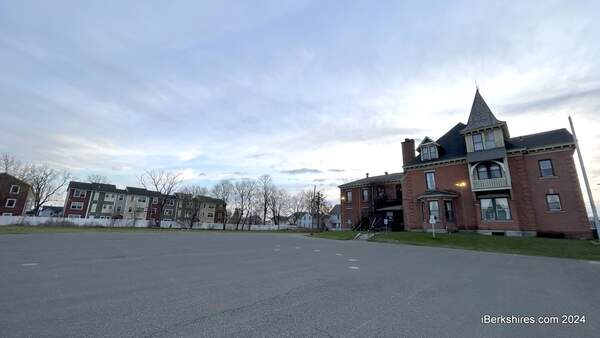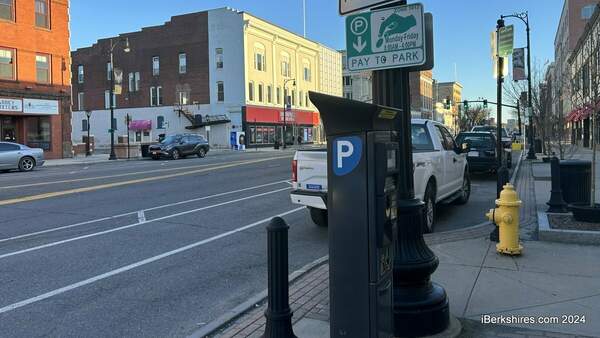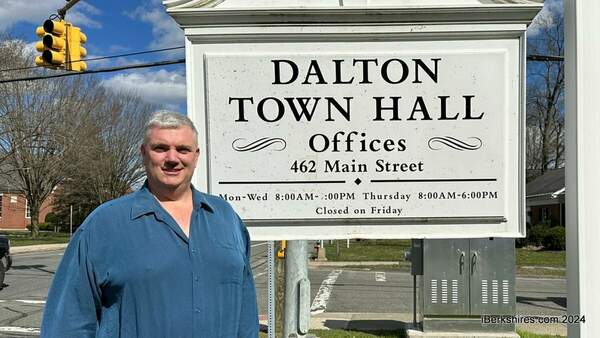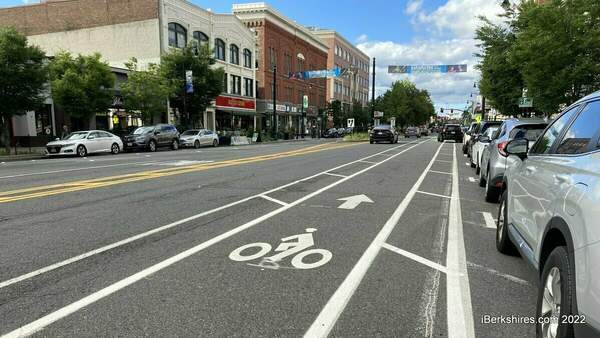Local Lawmakers Push To Override Baker's Budget Vetoes
.JPG) The Legislature is expected to take up some of the overrides next week. The Legislature is expected to take up some of the overrides next week. |
PITTSFIELD, Mass. — Local legislators are hoping to restore most of the governor's $162.8 million in vetoes from the state budget.
"I thought the budget was a strong budget that we sent to the governor. And then I saw his vetoes and I was disappointed," state Rep. William "Smitty" Pignatelli, D-Lenox, said on Thursday. "I hope we commit to do the right thing and restore these cuts."
Pignatelli used the example of the Berkshire Youth Development Project, which brings a number of organizations together to fight things like teen pregnancy, recidivism, and opioid abuse. That had $100,000 in funding that was vetoed. Without that funding, the collaboration won't survive, he said.
"This has been a collaboration like I've never seen before for very little money," Pignatelli said, adding that the group is now seeing "measurable results." "We're getting great mileage out of it and it got caught up in a line item veto that it was attached to."
North County Rep. Gailanne Cariddi, D-North Adams, has a number of similar concerns with vetoes. The line that funds the Bay State Games was cut by more than half — down from $9 million as proposed to $4 million. The annual winter games are held at venues in the Berkshires, including in North Adams and Williamstown.
"It would be relatively certain that the Bay State Games would be cut accordingly," Cariddi said on Thursday. "It is something we must continue to keep going. It introduces thousands of people to the Berkshires."
Some $75,000 for MCLA Gallery 51 in downtown North Adams was vetoed and Cariddi says is important to the downtown vibrancy and the arts education at the Massachusetts College of Liberal Arts.
BerkshireRides, which provides transportation for people to get to work when the buses aren't running, was also on the chopping block. The House of Representatives put $100,000 in the budget to fund that program. The Senate upped that to $400,000. And then Baker vetoed it.
"It was a brand-new budget line and it was the only earmark in the transportation budget," Cariddi said. "We want to make sure that the hard work the senator and I did remains in the budget."
Sen. Benjamin Downing, D-Pittsfield, helped secure that funding line. On Wednesday, he too expressed concern with the vetoes.
"Some of the vetoes have the potential to negatively impact the economy," Downing said.
Downing said $3 million grants to help area school districts look into regionalization was cut. School committees in the area have been meeting regularly to re-envision the system and that pool of money was eyed to help put planning into motion. He added that the Berkshire Development Program, Gallery 51, and the Playwright Mentoring Program are all impacted by the vetoes if the Legislature doesn't override them.
Rep. Tricia Farley-Bouvier, D-Pittsfield, said the budget presented to the governor was balanced and the organizations depending on the funds understood and accepted those levels. And then the vetoes changed things.
"You want to be partners with the governor but then he cuts things that we hold of value," Farley-Bouvier said. "He knows these vetoes will be overridden."
A program to expand universal kindergarten was vetoed. Baker cut that program down to $1 million from $18 million. Pittsfield, for example, had been receiving that grant and in the budgeting process had to account for that loss, which was part of a large increase in the school budget.
"We really need to keep full-day prekindergarten in as many public elementary schools as we can," Cariddi said. "It would, in effect, be a decrease in local aid to schools."
Rep. Paul Mark, D-Peru, just chaired a subcommittee eyed to reduce the debt burden on college students. For years, the state universities received increased funding in an agreement to keep tuition level. The budget is now forcing the University of Massachusetts to increase tuition for the first time in four years.
"There is definitely a need for a greater investment in higher ed," Mark said. "The governor vetoed a significant amount of money from UMass."
Most of Baker's cuts centered on earmarks, which is understandable because administrators want to dictate where the funds go. Mark says representatives put those earmarks in for a reason because they know the issues in their communities better than the administration.
Farley-Bouvier said funding for Engligh language learners in the gateway cities is one of those types of earmarks.
"We funded that at $1.2 million and he reduced it to zero. He doesn't come from a gateway city. He doesn't know the needs if he is doing something like that," she said.
She added that additional funds were put in for regional transportation authorities but the governor cut that back to level funding. That veto breaks a promise the Legislature made to the RTAs, she said. Farley-Bouvier said she pushed for additional funds to combat homelessness and funds for veterans services, both of which were cut out.
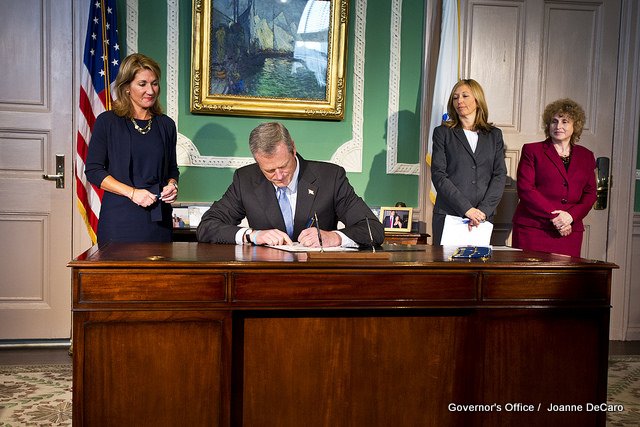 Gov. Baker signing the state's $38 billion budget, which included $163 million in vetoes. The Berkshire delegation believes the Legislature will be able to override most if not all of the vetoes. Gov. Baker signing the state's $38 billion budget, which included $163 million in vetoes. The Berkshire delegation believes the Legislature will be able to override most if not all of the vetoes. |
The vetoes, however, aren't all expected to stay in place. Many of those could be overridden by a two-thirds vote as early as this week.
"The budget passed with all but one member of the Legislature," Mark said. "That's nearly unanimous. I would assume if an override comes up, it will probably pass."
The Mass Cultural Council saw a $2.3 million veto, which all of the representatives are advocating for an override. Both Farley-Bouvier and Pignatelli said every dollar spent with that organization translates for five to seven coming back into the state.
At this point, lawmakers are advocating for programs that were vetoed to come to an override vote. In the end, the budget is expected to be closer to that the Legislature's conference committee approved.
"There is a lot of good in the budget the governor signed and approved," Downing said, adding to the chorus that the budget that came out of the Legislature was "responsible" and did a lot of good.
"All things considered, it was a successful budget."
Downing was particularly happy with an expansion of the earned income tax credit. That program was doubled in the budget.
"I'm thrilled we were able to get a 50-plus percent increase on earned income tax credit. Putting that in place really gets at the pervasive issue of poverty," Downing said. "The EITC is incredible important."
Mark said he was happy to see increases for K-12 schools, including a $111 million for Chapter 70. Regional school transportation also saw a bump. And money for the Franklin County Opioid Task Force was secured in the budget.
Baker said the budget's increases reflect his administration's priorities in schools and jobs. Meanwhile, the budget helps to fix the Massachusetts Bay Transportation Authority with the creation of a new fiscal management control board.
"I'm proud to have signed a fiscally responsible budget that prioritizes Massachusetts jobs, communities and schools, without raising taxes, by investing in transportation, local aid, education and providing tax relief for over 400,000 working individuals and families," Baker said.
"As we implement our vision for a greater Massachusetts, we look forward to beginning the work of fixing the MBTA, investing in vital services for our most vulnerable, and curbing the opioid epidemic that has claimed far too many lives. Putting the state back on solid fiscal footing will play a major role in making our Commonwealth a better place to live, work and raise our families."
Part of that MBTA compromise, however, doesn't sit well with Farley-Bouvier. She voted for the budget despite a clause that called for suspension of the "Pacheco Law" that makes it more difficult for public services to be privatized.
"It has chilling effects on all unions because it is the first step toward privatization," Farley-Bouvier said, emphasizing that the provision required the administration to prove that there is a benefit in doing so. "I don't think the governor needed that to right the ship."
She pointed to Wisconsin, where protests erupted a few years ago as the governor there passed laws limiting what public unions could negotiate.
Downing said he wished the budget had greater investment in state parks and lands, which draw people to the Berkshires. He joined Mark in saying he felt more should be done with higher education. And Downing felt transportation funding should have been increased.
"There will be areas where we disagree. But we will continue to come to a place to meet all of our shared goals," Downing said.
Mark said overall the budget reflects the "political realities of the state" in that there is new leadership in the Senate and in the administration with different priorities. The process will only get smoother, he said, as the new players get to know each other better.
The House of Representatives will take its first crack at the vetoes this week. The formal session breaks for the summer at the end of the month, but the representatives all feel many of those overrides will come to a vote before then.
Tags: Berkshire delegation, state budget, veto,
.JPG) The Legislature is expected to take up some of the overrides next week.
The Legislature is expected to take up some of the overrides next week. Gov. Baker signing the state's $38 billion budget, which included $163 million in vetoes. The Berkshire delegation believes the Legislature will be able to override most if not all of the vetoes.
Gov. Baker signing the state's $38 billion budget, which included $163 million in vetoes. The Berkshire delegation believes the Legislature will be able to override most if not all of the vetoes.

